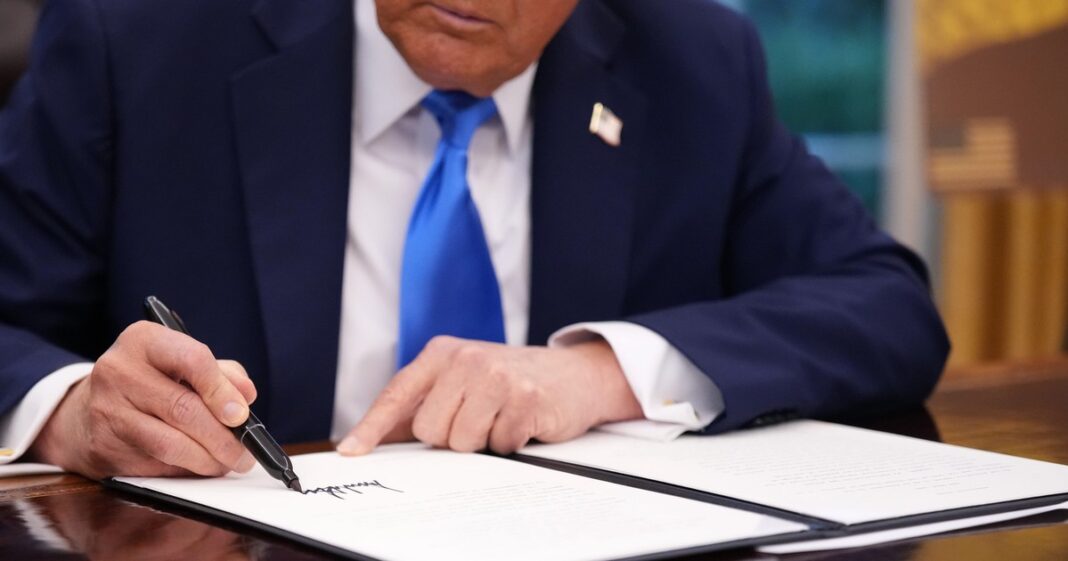The Impact of the $100,000 H-1B Fee on Global Recruitment
Introduction
On September 21, 2025, a transformative measure affecting recruitment practices in the technology and business sectors is set to take effect. The White House’s proclamation introduces a substantial fee for companies applying for H-1B visas, aiming to recalibrate the landscape for skilled foreign workers looking to enter the United States.
Key Provisions of the September 19 Proclamation
At the core of this proclamation is the directive requiring employers petitioning for H-1B applicants from abroad to pay a hefty $100,000 fee. This regulation specifically targets workers outside the U.S., meaning that those already in the country will not be affected by this financial barrier. The implications are profound: companies must now weigh the value of hiring foreign talent against the additional costs incurred.
Quotes from Leadership
US Commerce Secretary Howard Lutnick emphasized the potential impact of this decision, stating, “Companies need to decide: is the person valuable enough to have a $100,000-a-year payment to the government, or should they head home and go hire an American?” His assertion underlines a pivotal moment for organizations that have long relied on international expertise to drive innovation.
Corporate Response to New Regulations
In light of these changes, major technology firms have reacted swiftly. Companies such as Microsoft, Google, Amazon, and Meta are urging affected employees to take immediate action to secure their jobs in the U.S. Microsoft specifically advised H-1B workers currently abroad to return to the States before the deadline, highlighting the urgency of their situation.
Internal Communications
Microsoft’s internal memo stated:
“If you are on H-1B status and are currently outside the U.S., we strongly recommend that you return to the U.S. tomorrow before the deadline. If you are currently on business travel, call the emergency telephone number listed on your BCD Travel itinerary immediately to book travel back to the U.S.”
This directive is indicative of the anxiety and rapid response elicited by new regulatory measures.
Implications for African Professionals
For African professionals seeking careers in the technology sector, the new H-1B fee heightens existing challenges. While dominant applicants from countries like India and China secure the majority of H-1B visas, African professionals face obstacles exacerbated by already high visa denial rates. They comprise only 1 to 2 percent of H-1B visa holders, raising alarms about the potential loss of skilled talent leaving the continent.
Concerns Over Career Pipelines
Analysts are concerned that these policy changes may disrupt not only the career trajectories of individuals but also the broader technological landscape in Africa. There’s an urgent call for African nations to strengthen their economies to retain local talent amid increasing barriers to entry for international opportunities.
The STEM Pipeline Risk
A diaspora journalist voiced growing concerns, warning that new H-1B rules risk severing Africa’s STEM pipelines. This could lead to a detrimental brain drain as universities may lose skilled graduates while vital sectors like healthcare may inadvertently benefit from waivers—leaving fields critical to Africa’s development at risk.
Impact on U.S. Startups and Smaller Firms
Startups and smaller companies in both the U.S. and abroad will likely feel the brunt of this new regulation. Many organizations that rely on specialized foreign talent may struggle to absorb the steep new costs, particularly as they scale operations in response to market demands.
Rising Remote Opportunities
Conversely, the measure could stimulate alternative opportunities as corporations pivot to remote hiring practices, similar to the trend witnessed during the COVID-19 pandemic. This shift may help fill critical skills gaps without necessitating relocation, offering newfound flexibility to African professionals seeking employment.
Additional Measures and Broader Context
The H-1B fee is part of a broader shift in immigration policy, which includes introducing a “gold card” immigration system that expedites residency for wealthier individuals willing to pay substantial fees. This expanding regulatory framework draws attention to rising nationalism and stricter immigration measures impacting various fields.
Shifting Migration Flows
The consequences of the H-1B directive might prompt skilled workers to consider alternative destinations where immigration policies are more favorable, such as Canada, the U.K., and the UAE, which are strategically enticing global talent.
Benefits for African Technology Hubs
Interestingly, Africa’s own technology hubs—such as those in Lagos, Nairobi, and Cape Town—could benefit from this shift. As opportunities dwindle in the U.S., there remains potential for retaining skilled professionals who might have otherwise pursued careers abroad.
The landscape of global recruitment is undergoing a substantial transformation, with the implications of the new H-1B fee resonating across multiple continents and industries. As companies and individuals navigate this new terrain, the overarching theme remains: the quest for balance between economic interests and the pursuit of talent in an increasingly complex global job market.



